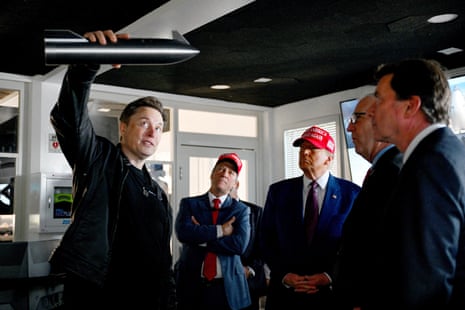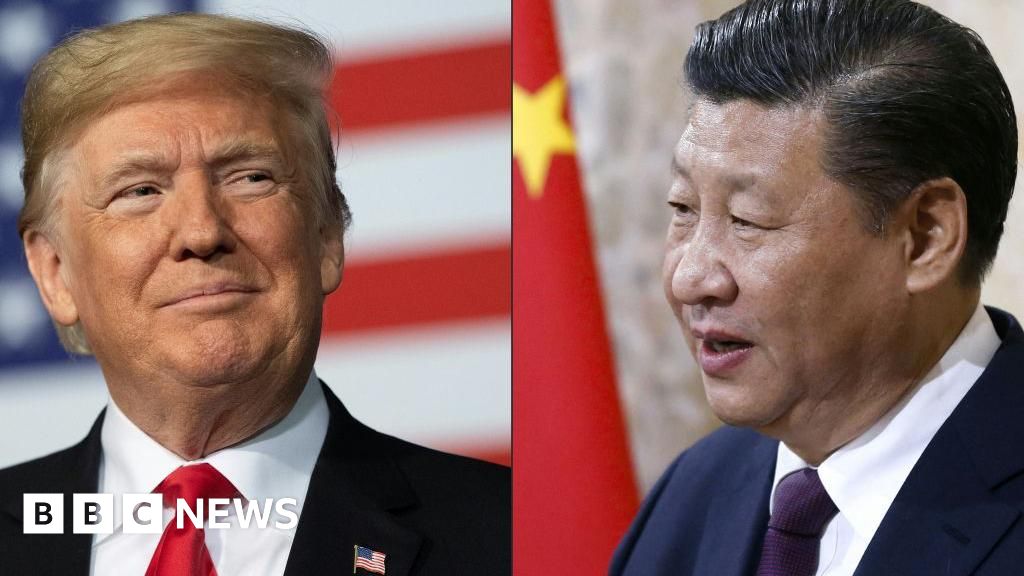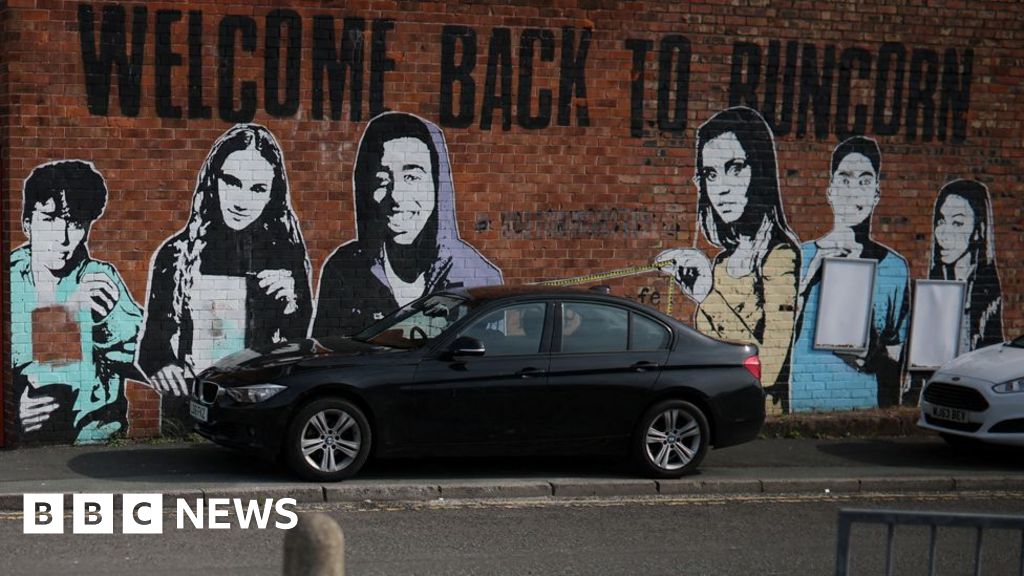Elon Musk's Influence on U.S. Department of Transportation Raises Conflict of Interest Concerns

In a controversial revelation, it has come to light that Elon Musk's ambitious efforts to streamline governmental operations through his so-called department of government efficiency have led to the preservation of certain U.S. Department of Transportation (DOT) positions that provide crucial support for spacecraft launches conducted by Musk's companies, SpaceX and Starlink. This situation has ignited a new wave of scrutiny regarding potential conflicts of interest involving Musk and the federal government.
According to the latest budget proposal for the fiscal year 2025, which was reviewed by the Guardian, funding was allocated for several positions critical to commercial space operations. These include roles in pipeline management, transportation management, air traffic control, and cybersecurity. Each of these areas is vital for the safe and efficient operation of SpaceX, Starlink, and other commercial space ventures.
The decision to retain launch support personnel while simultaneously cutting thousands of other jobs within the DOT has raised significant ethical questions. Critics argue that this move suggests that Musk is willing to protect the employment of federal workers only when their roles directly benefit his business interests. A former congressional staffer and current employee in the space industry, who chose to remain anonymous, remarked, Keeping these employees on the payroll is showing Musks bias because cutting these people would create so many hindrances to him launching.
The same source continued, Its really odd that these specific positions were spared. If I had to interpret it, I would say this is intentional because Musk understands these roles are indispensable to the functioning of the space industry.
This conflict of interest scenario is not new for Musk, who has been embroiled in various controversies regarding his influence over federal operations. The Trump administrations agenda to drastically reduce the federal workforceaiming for a 75% cut from the current 2.3 million employeeshas often intersected with Musk's business ambitions. Critics have charged that Musk has managed to secure lucrative contracts for his enterprises while simultaneously undermining agencies that could potentially impede his profit-making ventures.
Lisa Gilbert, co-president of the advocacy group Public Citizen, stated that the current state of affairs is completely unsurprising. She added, Giving someone so intertwined with government an excessive amount of power to alter its structure is problematic. Its damaging for American taxpayers and advantageous for Musks financial interests.
Neither SpaceX nor the DOT has commented on these allegations. Presently, the DOT employs approximately 57,000 individuals, with reports indicating that around 800 probationary employees were laid off in March. As of April 1, the administration began sending buyout offers to encourage more employees to voluntarily resign, promising pay and benefits until September 30. Involuntary layoffs are anticipated for many who choose to remain.
The budget documents reveal significant financial support specifically aimed at facilitating Musk's enterprises. For instance, $21 million has been earmarked for the Office of Commercial Space Transportation to enhance air traffic control capabilities within the Federal Aviation Administration (FAA). This funding is designed to manage the increasingly complex airspace resulting from the frequency of SpaceX launches, which occur multiple times each week. The FAA has reported that 80% of its overtime costs can be traced back to supporting SpaceX operations.
Furthermore, while the funding allocated does benefit SpaceX and other private space enterprises, it also extends support to NASA and military operations. Nonetheless, Musk has previously advocated for budget cuts to NASA and the National Oceanic and Atmospheric Administration (NOAA) programs that do not align with his business objectives.
While it is true that we need more air traffic controllers and are experiencing a shortage, their role is crucial for space launches, said the former congressional staffer. The reality is often obscured by the truth. Meanwhile, the budget also allocates $400 million to fund the U.S. Pipeline and Hazardous Materials Safety Administration (PHMSA), which oversees the transportation of fuel and hazardous supplies essential for launches. This funding supports the agencys expanding responsibilities to ensure the safe transport of hazardous materials, which is increasingly relevant given the rising energy market and the high-value equipment associated with space operations.
The budget further specifies that the DOT will continue to set safety standards and conduct inspections for the transport of space-related equipment by various means, including truck and air. The same former staffer indicated that the DOT may need to close highways during the transportation of spacecraft or hazardous materials.
Additionally, within the PHMSA budget, an $81 million line item has been designated for staffing increases to handle the growing demands of the space industry. These new positions will assist with the management of special permits and approvals related to the transportation of high-value hazardous materials destined for space.
The DOT has also emphasized that it is retaining employees who work in cybersecurity. This area encompasses a broad range of responsibilities across the agency, yet Musks systems, which are utilized by the U.S. government, rely heavily on robust cybersecurity measures.
In light of these developments, Public Citizen is backing legislation introduced by Senator Elizabeth Warren aimed at tightening conflict of interest regulations for individuals like Musk, who are deemed special government employees under the current administration. Its a concerning moment, and its not what we want to seean individual amassing power without the necessary checks on those serving in government, Gilbert remarked.



























